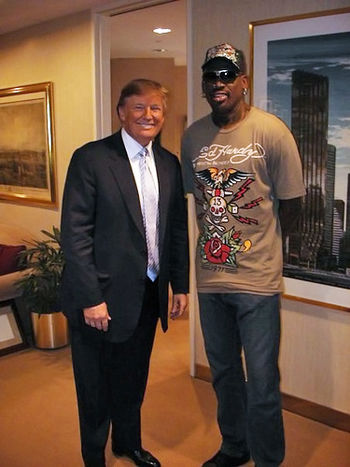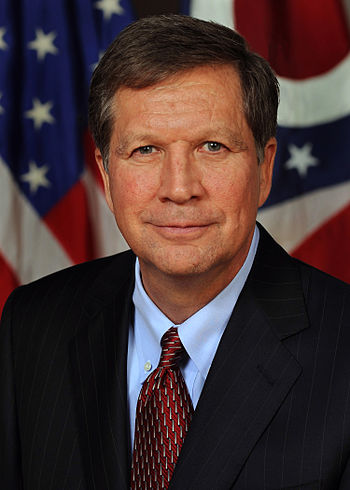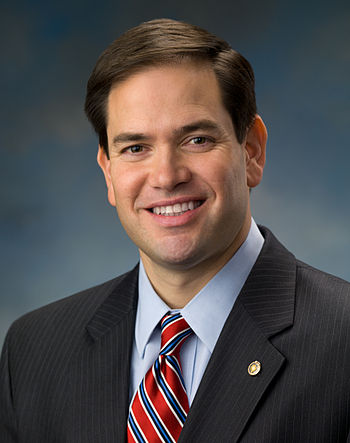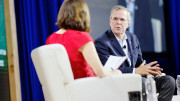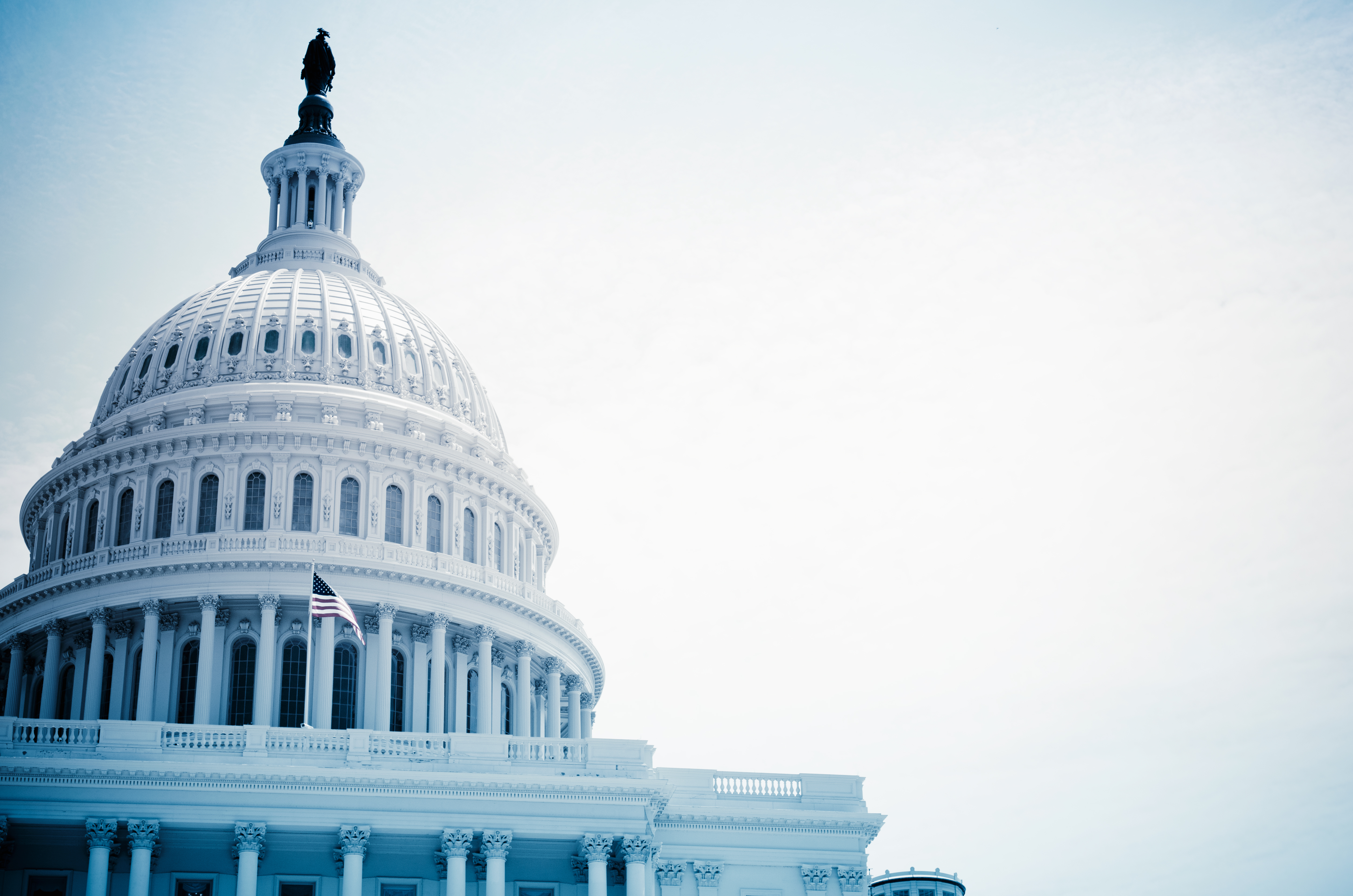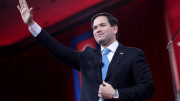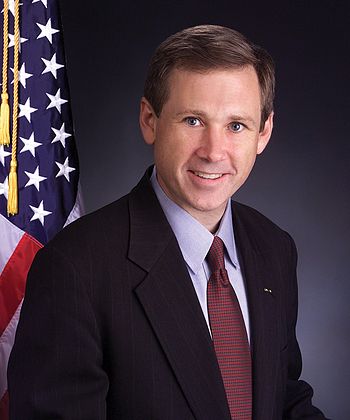Analysis: What New Hampshire means for the Presidential elections and candidates
By Ray Hanania
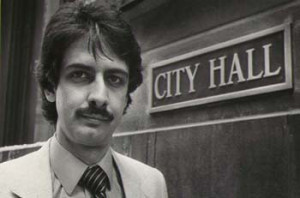
Ray Hanania
New Hampshire won’t decide who will become the next president of the United States, but it might help serve as a roadmap to explain how people are reacting and why.
Although New Hampshire is considered the first “true primary” because voters actually vote in secret unlike in Iowa where voters are forced to declare their choices publicly in front of crowds called “caucuses” that sometimes have bullying environments, it really is just the beginning of a primary election process that will grow during the next few months.
Click here for the Election calendar.
Donald Trump, the real estate mogul and television personality, easily won the Republican Party Primary raking in more than 36 percent of the total votes cast, far more than his closest rival, Ohio Gov. John Kasich.
Trump and Kasich far outdistanced some of the big names that have been touted in the Republican Party and news media, like Texas Senator Ted Cruz, Florida Gov. Jeb Bush and Florida Senator Marco Rubio, who many predicted would break through to lead the GOP but ended up being injured when he repeated memorized, canned lines in an ABC TV News Republican debate this past week.
New Jersey Governor Chris Christie slammed Rubio calling him out as a phony who “memorized” popular campaign lines in response to serious questions: When Rubio said Obama “knows exactly what he is doing,” Christie replied quickly, “There it is. There it is. The memorized 25-second speech. There it is everybody.”
That moment pulled the rug out from under Rubio’s candidacy
Despite sabotaging Rubio, Christie could not break out of single-digit percentages that he shared in the New Hampshire dust with now marginalized candidates technology executive Carly Fiorina and Dr. Ben Carson.
In the Democratic Primary contest, Vermont Senator Bernie Sanders, who would become the nation’s first Jewish president, easily outdistanced his rival, former New York Senator and U.S. Secretary of State Hillary Clinton, the former First Lady who would become the nation’s first woman president.
This all may seem confusing. How do popular, well known veteran politicians and candidates like Clinton, Kasich and even Bush end up trailing in the blurry Jetstream of unknown contenders who many argued only weeks ago had no chance of ever becoming president?
Can Donald Trump or Bernie Sanders really win their parties nominations and go on to become president, or are the skeptics just sore losers who represent political parties that are in massive change across this country?
Clinton won the New Hampshire primary in 2008, but went on to lose the Democratic presidential nomination to her rival at the time, then Senator Barack Obama.
That seems to be the sentence that has now become the platform moving forward for Clinton, who told her supporters that the “real race” would begin when the candidates move to the mainstream state primaries this March.
The Clintons knew they were in trouble and had hoped they could keep Sanders’ win down to a narrow margin of only a few points.
Sanders is from neighboring Vermont, but many believe his popularity goes far beyond Hillary’s experience and track record and years in high profile government offices.
Sanders connected with younger voters, according to many observers. Although his critics, especially in the conservative, Republican Party have hammered him because of his “socialist” message. Only a Jewish candidate could take the words “Democratic” and “Socialism” and revive them into a positive message of change for this country.
The word “socialism” alone has been a hot button issue that has often ended candidacies and campaigns, but adding the word “Democratic” to it has reminded people of how that phrase was misappropriated by a movement of demagoguery and hatred prior to and during World War II in Germany almost eight decades ago.
Maybe the Left has finally found someone who is able to take that important phrase back from the purgatory it was sent to in the 1930s and 1940s? Democracy and Socialism actually stand for individual freedoms and support for the mainstream people.
Social Security is a form of socialism and it is the system that nearly 80 percent of today’s World War II produced citizens, Baby Boomers and senior citizens have turned to in order to survive today’s tough economy.
On the Republican side, Trump’s ascension is hard to explain, especially to veteran conservatives who are in love with Cruz and his evangelical upbringing.
That’s why Kasich was celebrated as having “won” by his Republican supporters, even though he got less than half the vote that Trump won in the same election.
Republicans are in shock that Trump, who many claim is a merely a conservative Democrat – someone that might have been called a “Reagan Democrat” back in the 1980s and 1990s – and not someone who should be the standard barer of the Republican Party war cry that has been growing over the years against Democrats and liberals.
Trump won even though nearly every leading Republican strategist and news media commentator has predicted that he will never become the Republican Party candidate and is a “fluke.” Yet they still can’t explain why Trump has managed to build up his support or why polls continue to show him to be the favorite candidate of the Republican voters.
The answer might be simple. Trump is no politician. He doesn’t lie to get votes the way many Americans have come to expect candidates to act during elections, promising one thing and doing something else when they get into office.
Many Americans, Republicans and Democrats are tired of candidates making promises they don’t keep, like the most infamous campaign promise that was broken after an election, the pledge by George H.W. Bush in 1988 in which he declared unequivocally, “Read my lips: No New Taxes.” Once he became president, he immediately raised taxes and he served only one term in office.
Trump has made some very controversial remarks, like asserting that drug dealers and killers are the real movement crossing the border from Mexico into the United States. He was to crack down on the illegal immigration that is spilling across our southern borders from Mexico, which is racked by killings and violence by brutal drug lords like the Sinaloa Cartel and its leader, drug kingpin Joaquin “El Chappo” Guzman, who was recently arrested and imprisoned for the second time since his 2001 escape from a Mexican jail.
Although many Mexican immigrants continue to side step American immigration laws to enter this country, many drug dealers and criminals continue to control that process of human trafficking and human movement and the violence that daily overshadows the concerns of human rights activists.
Illegal immigration is an issue that seriously concerns many Americans, Republicans and Democrats alike and Trump is the only candidate who is openly addressing it without sugar coating the problem or avoiding the tough choices.
After winning the New Hampshire Primary, Trump declared that he would build the wall to close the border with Mexico, something that Israel has done to reinforce its occupation of non-Jews in the occupied Palestinian territories.
Trump has proudly estimated it would cost taxpayers only $8 billion. That is nothing compared to what American spent to underwrite the illegal war in Iraq driven by former President George W. Bush after the terrorist attacks of Sept. 11, 2001, to protect this nation from terrorists.
It didn’t work but the notion continues to have widespread support.
Many believe that Sanders, who has promised to do what most Americans really want done, to break up the Banks and the Banking Industrys’ corrupt Robber Barons, address climate change, implement free education to the nation’s students, crack down on gun possession by banning automatic weapons, facilitate a faster path to citizenship for immigrants – not the drug dealers and criminals – raise taxes on the rich (making over $250,000 a year) and change our foreign policy.
Clinton claims to want the same goals but her words sound like she is playing games with promises and broken promises. Will she really what she says?
Also hurting Clinton is that her failed bid in 2008 and the eight years she has been forced to wait to run again for president, has quelled the enthusiasm she had then as the first woman many believed had a real chance to become president.
Ironically, many were enthusiastic to elect Obama as the nation’s first African American president. But many are now also asking, does superficial issues of a candidate’s race or gender really make a difference in confronting real issues like the continuing sick American economy or in protecting this nation?
Many voters loved her husband, former President Bill Clinton and believe he is the Democratic Party’s Ronald Reagan. Electing Hillary Clinton would bring Bill Clinton back to the White House.
That enthusiasm must be waning.
Nevada (caucus) and South Carolina (primary) are the next in line and have their elections on three upcoming dates February 20, 23 and 27.
But the big voter turnout across the country will begin March 1 when primaries are held in 14 states including Texas, Virginia, Oklahoma, Georgia and Massachusetts. Fifteen more states and territories will hold elections in the next weeks, including Michigan on March 8, but the elections will reach critical mass on March 15 with primaries in Ohio, Florida, Illinois and North Carolina.
No candidate can win the presidency without winning both Florida and Ohio.
More elections will follow through California and New Jersey on June 7 ending on June 8 with a primary in the nation’s capitol Washington D.C.
Will Trump and Sanders still be leading the pack? And what will the real concerns of American voters be then?
(Ray Hanania is an award winning former Chicago City Hall reporter and columnist. Reach him at [email protected].)
Ray Hanania
Hanania covered Chicago political beats including Chicago City Hall while at the Daily Southtown Newspapers (1976-1985) and later for the Chicago Sun-Times (1985-1992). He published The Villager Community Newspapers covering 12 Southwest suburban regions (1993-1997). Hanania also hosted live political news radio talkshows on WLS AM (1980 - 1991), and also on WBBM FM, WLUP FM, WSBC AM in Chicago, and WNZK AM in Detroit.
The recipient of four (4) Chicago Headline Club “Peter Lisagor Awards” for Column writing. In November 2006, Hanania was named “Best Ethnic American Columnist” by the New American Media;In 2009, he received the prestigious Sigma Delta Chi Award for Writing from the Society of Professional Journalists. Hananiaalso received two (2) Chicago Stick-o-Type awards from the Chicago Newspaper Guild, and in 1990 was nominated by the Chicago Sun-Times for a Pulitzer Prize for his four-part series on the Palestinian Intifada.
Hanania’s columns are published by the Illinois News Network every week. You can reprint his columns with full credit to the author, using the shirttail and without content edits. Hanania is also President/CEO of Urban Strategies Group media and public affairs consulting which has clients in Illinois, Florida, Michigan and Washington D.C. His personal website is www.TheMediaOasis.com, and www.UrbanStrategiesGroup.com. Email him at: [email protected]
Latest posts by Ray Hanania (see all)
- Analysis: What New Hampshire vote means - February 11, 2016
- Lyons names veteran Chicago police deputy as Chief - February 9, 2016
- Will controversy follow recent sale of Palos Church to Muslims? - January 28, 2016



